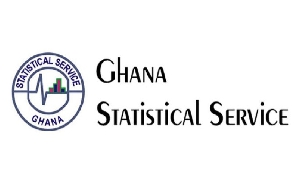The Ghana Statistical Service (GSS) has launched Ghana’s first Compendium on Environment Statistics (ES), adopting the UN Framework for the development of environment statistics (FDES, 2013).
The FDES is a multipurpose statistical framework that is comprehensive and integrative and defines the scope of environment statistics, and provides an organised structure to guide the collection and compilation of environment statistics at all levels, bringing together data from the various relevant subject areas and sources.
Dr Bernice Serwaah OfosuBaadu, Head of Agricultural & Environmental Statistics at GSS, presenting the findings during the launch of the Compendium on Environment Statistics (ES) said, the framework which is broad and holistic, covers the issues and aspects of the environment that are relevant for policy analysis and decision making.
“The compendium is the first to be compiled on Environment Statistics in the country to The Ghana Investment Promotion Centre (GIPC) and Invest for Jobs, an initiative of the German Federal Ministry for Economic Cooperation and Development (BMZ), on Thursday signed an agreement worth €762,300 to mobilise investments and promote job-creating growth of enterprises.
The cooperation between the two parties will address investment promotion challenges reinforced by the coronavirus pandemic to help maintain and create new jobs in Ghana.
The Special Initiative on Training and Job Creation, the official title of Invest for Jobs, is implemented, among others, by the Deutsche Gesellschaft fur Internationale Zusammenarbeit (GIZ) GmbH.
With a decline in foreign direct investment around the world, partly because of the coronavirus pandemic, it has become imperative for governments to maximise developmental support GSS launches Ghana’s first compendium on environment statistics the attainment of the Sustainable Development Goals (SDGs), the African Union Agenda 2063, the Coordinated Programme of Economic and Social Development Policies 2017- 2024, the National Medium-Term Development Policy Framework and other relevant national policy initiatives.
This is expected to make it even “The pandemic has made aftercare of investors particularly important and therefore the cooperation between the Ghana Investment Promotion Centre (GIPC) and the German Cooperation through Invest for Jobs will facilitate the provision of information to investors, and support to relevant companies to address investment barriers,” added Mr. Grant.
A further focus of the cooperation between the two parties include supporting potential investors who, due to help policymakers understand the interlinkages within and between environment-related goals and targets; promote policy coherence and integration of the environmental dimensions of the SDGs,” she said.
In addition to providing data for planning, data from the FDES will also help policymakers monitor the progress towards to retain investment, encourage follow-on investment and achieve greater local economic impact.
Investment promotion agencies in most countries are now focusing primarily on keeping investors in the country, strengthening their resilience, and encouraging restructuring to preserve companies and safeguard jobs.
“ I am delighted to be a part of this initiative, which is anchored in addressing private sector needs,” noted the Head of Development Cooperation at the German Embassy, Ms. Dorothee Dinkelaker. We look forward to the cooperation with GIPC to help build a more enabling environment for investors and raise awareness on investment opportunities in Ghana,” added Ms. Dinkelaker.
“This joint effort comes at a crucial time for Ghana in the global context, where governments are designing more strategic and innovative ways to promote investment and boost economic growth,” highlighted the Chief Executive Officer of GIPC Mr. Yofi Grant.
The Compendium reports on some indicators of the 17 SDGs except Goal 10, reducing inequalities in income as well as those inequalities based on sex, age, race, among others, as the indicators under Goal 10 use information which is not currently in the Basic Set of Environment Statistics of the Framework for the Development of Environment Statistics (FDES 2013). Progress in reducing inequalities supports the achievement of environmentallyrelated SDGs.
The compendium has been prepared by the National Implementation Team (NIT), a collaboration between Ghana Statistical Service (GSS) and Environmental Protection Agency (EPA) with technical assistance from United Nations Economic Commission for Africa (UNECA) is based on the Basic Set of Environment Statistics (BSES) contained in the Framework for the Development of Environment Statistics (FDES 2013).
The Compendium will be updated on an annual basis.
Business News of Friday, 18 December 2020
Source: thebusiness24online.net













